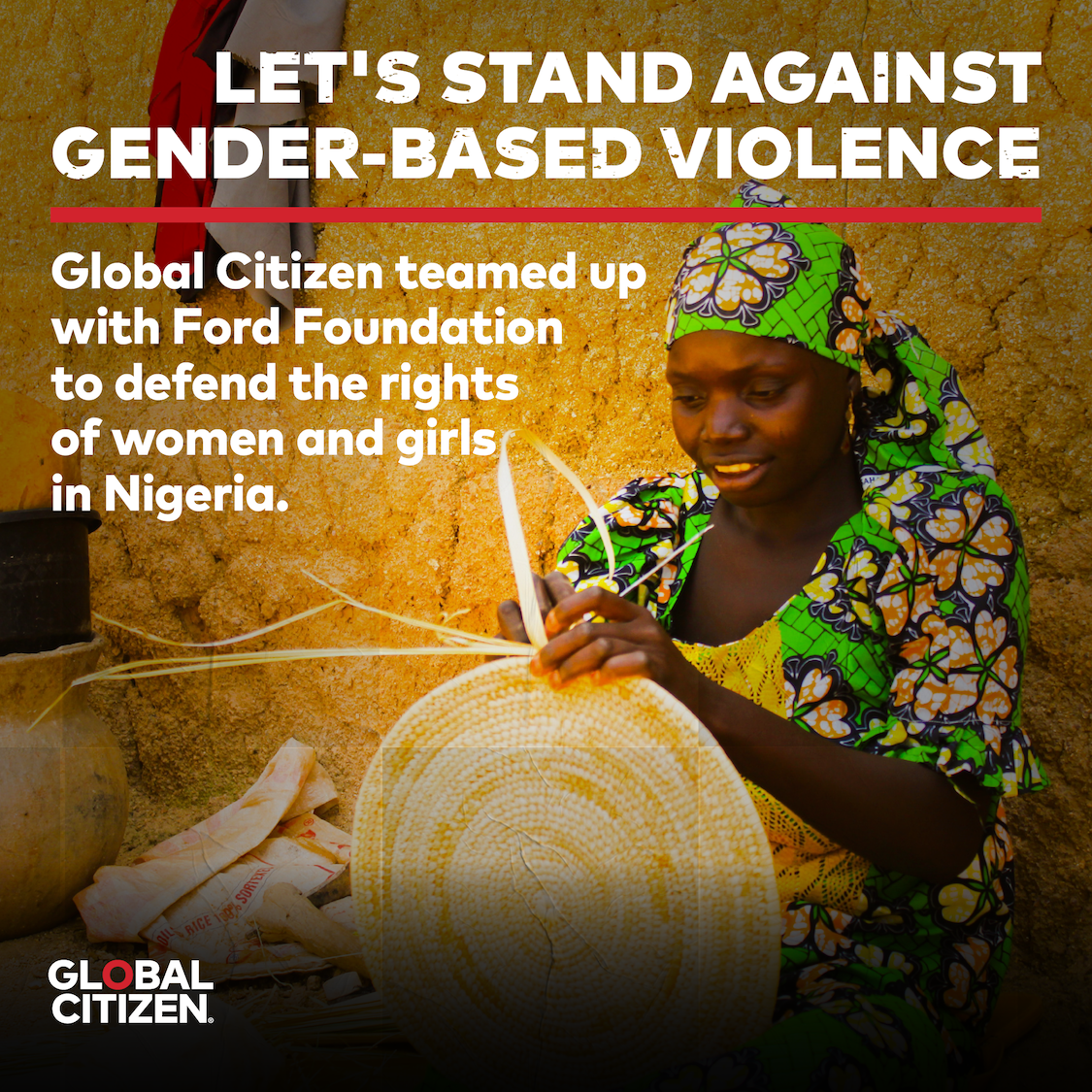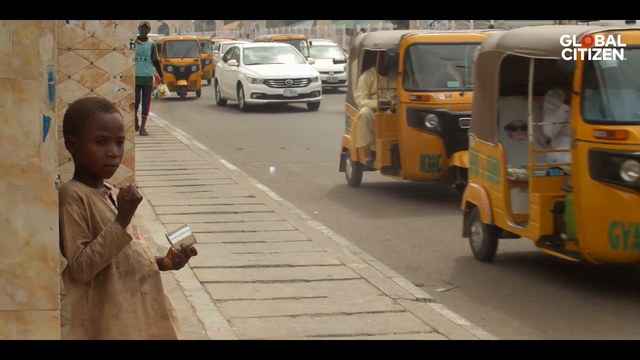Global Citizen Release Impactful Short Film Calling for Urgent Action to End Gender-Based Violence Across Nigeria and the World
Part of the Ongoing Roadmap to 36 Advocacy Campaign Urging all Nigerian States to Protect Women and Girls by Implementing the VAPP Act NOW
LAGOS, Nigeria, July 20, 2022 /3BL Media/ - Today, Global Citizen, the international advocacy organisation, released an impactful short film highlighting the call to action to combat gender-based violence across Nigeria, and urging all states to immediately implement the Violence Against Persons Prohibition Act of 2015 (VAPP Act).
The film forms part of the organisation's ongoing Roadmap to 36 advocacy campaign leveraging resources to protect women and girls, by mobilising stakeholder engagement to scale up interventions and drive impact in dismantling negative social norms through funding, innovative multi-stakeholder coordination, along with grassroots engagement, with the aim to drive policy changes and resource the implementation of the VAPP Act.
The film created by Gatefield, a Nigerian based media agency, highlights the harrowing stories of gender-based violence survivors, set against the backdrop of Ekiti state, one of the first to domesticate the VAPP Act of 2015; Abuja in the Federal Capital Territory, where the Act was first passed federally; and Kano state, where the VAPP Act has not been adopted yet. Survivors retell their personal stories of extreme hardships, including the difficulties in reporting a sexual offence and seeking justice as victims, prior to the domestication of the VAPP Act.
The short film aims to stop the culture of silence that surrounds the reporting of sexual crimes and violence, while outlining measures through which sexual crime reporting can be effectively conducted by victims. The film tracks the implementation and impact of the VAPP Act upon domestication and encourages states, yet to domesticate the VAPP Act, by amplifying the benefits of the Act’s increased safety and security of women and girls across the country.
According to the United Nations Population Fund (UNFPA), 3 in 10 Nigerian girls have experienced physical violence by the age of 15 and a Thomson Reuters Foundation survey from 2018 ranked Nigeria the ninth most dangerous country for women. Figures from the United Nations Children's Fund (UNICEF) show that 1 in 4 girls and 10% of boys have been victims of sexual violence. Fewer than 5% of those who have reported cases of violence have received any kind of support, the organisation says.
This rising trend of violence against women can be linked directly with harmful practices such as child and forced marriages - a prevalent harmful cultural norm in Nigeria, with 43% of girls married before the age of 18. An estimated 20% of women aged 15 to 49 have undergone female genital mutilation, a dangerous practice believed to enable a woman to be more marriage-eligible. Once girls in Nigeria are married, only 1.2% of those aged 15 to 19 have their contraception and wider sexual and reproductive health needs met, leading to high levels of early and teenage pregnancy.
In many communities across Nigeria and the globe, the COVID-19 pandemic has exacerbated cases of gender-based violence and injustice. A survey of 24 Nigerian States shows that in March 2020, the total number of reported gender-based violence incidents were 346, while in the first part of April 2020, incident reports more than doubled to 794 in just two weeks of lockdown. This trend can be indicative of the wider problem, as the majority of gender-based violence cases go unreported. New forms of violence have also arisen throughout Nigeria, including recent reports of women being maltreated by law enforcement agents, especially at checkpoints.
“During the recent COVID-19 lockdown, service providers reported a three-fold increase in cases of domestic and intimate violence in areas like Lagos, Ogun, and Abuja. Almost 45% of the women who have experienced violence never sought help or told anyone about the incident which is why it is imperative that all states urgently implement the domestication of the VAPP Act,” said Maimuna Maibe, Nigeria’s Country Director at Global Citizen.
Global Citizen, with the support from the Ford Foundation, is leading public campaigns and advocacy efforts to encourage global citizens to take action and lend their support calling for strengthening gender-based violence laws in West Africa, for the adoption of the Violence Against Persons Prohibition Bill (VAPP) and holding the national and local governments accountable for full implementation and resourcing of the bill.
-Ends-
About Global Citizen:
Global Citizen is the world's largest movement of action takers and impact makers dedicated to ending extreme poverty NOW. We post, tweet, message, vote, sign, and call to inspire those who can make things happen — government leaders, businesses, philanthropists, artists, and citizens — together improving lives. By downloading our app, Global Citizens learn about the systemic causes of extreme poverty, take action on those issues, and earn rewards, which can be redeemed for tickets to concerts, events, and experiences all over the world. For more information, visit www.globalcitizen.org and follow @GlblCtzn
For press inquiries please contact:
Global Citizen Public Relations
media@globalpoveryproject.com




